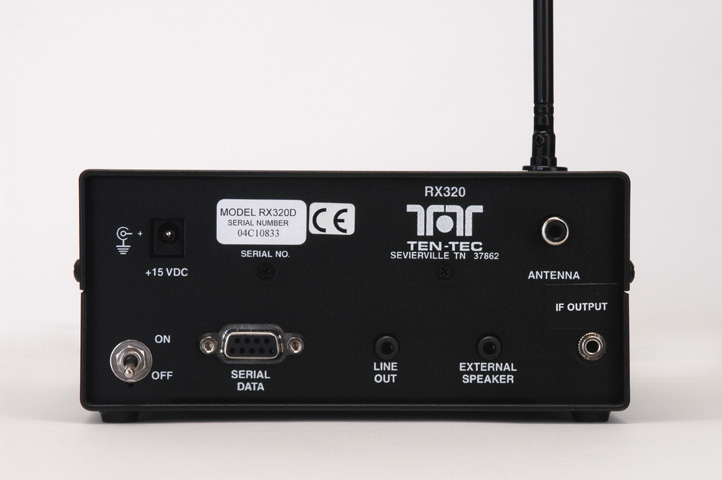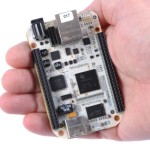 It's the holiday season, and our gift to our listeners is a brand new podcast. During my time at Ohio Linux Fest back in September, several of the participants who visited the Linux in the HAM Shack booth provided topic ideas for the program. I recently dug those topics up and Richard and I will be tackling them over the next few episodes. In Episode #026, the topic we decide to visit is shortwave listening, including hardware and Open Source software for that very purpose. SWL is a way for non-hams to approach the hobby without encountering mic fright, and a way for existing hams and non-hams alike to explore the world of radio frequency communication, whether it be foreign broadcasts, pirate radio, amateur radio or time beacons. With several manufacturers of equipment still in business, SWL is by no means a lost art, and may be an interesting extension to the amateur radio hobby for those who don't currently participate in it.
It's the holiday season, and our gift to our listeners is a brand new podcast. During my time at Ohio Linux Fest back in September, several of the participants who visited the Linux in the HAM Shack booth provided topic ideas for the program. I recently dug those topics up and Richard and I will be tackling them over the next few episodes. In Episode #026, the topic we decide to visit is shortwave listening, including hardware and Open Source software for that very purpose. SWL is a way for non-hams to approach the hobby without encountering mic fright, and a way for existing hams and non-hams alike to explore the world of radio frequency communication, whether it be foreign broadcasts, pirate radio, amateur radio or time beacons. With several manufacturers of equipment still in business, SWL is by no means a lost art, and may be an interesting extension to the amateur radio hobby for those who don't currently participate in it.
Several thank yous go out to those who donated to the Dayton Hamvention 2010 fund. With my upcoming matching contributions we'll be about halfway to our goal. Please keep those donations coming, even after we've met our goal, so we can continue to improve our equipment, our hosting and our program. As always, thank you for downloading Linux in the HAM Shack. Please send us your feedback and questions, and please tell everyone you know about us--through word of mouth, blogging, social networking, whatever it takes. Our listenership continues to grow, and we hope that trend continues for years to come.
73 de Russ, K5TUX
Podcast: Play in new window | Download
 Hello, folks! A couple weeks late and a dollar or two short, we're back! In this delectable episode of Linux in the Ham Shack, your intrepid hosts discuss a variety of topics from antenna safety to Linux conventions to getting your name on an asteroid. For our main discussion, we tackle a couple updates to Linux distributions, including one specifically for amateur radio use. Then we plow on through a heaping helping of feedback. Thanks for tuning in, and be sure to tell all your friends about us. Also, hope to see you all at Dayton this year! Rewards for those who pledged to our fund are coming soon. Stay tuned.
Hello, folks! A couple weeks late and a dollar or two short, we're back! In this delectable episode of Linux in the Ham Shack, your intrepid hosts discuss a variety of topics from antenna safety to Linux conventions to getting your name on an asteroid. For our main discussion, we tackle a couple updates to Linux distributions, including one specifically for amateur radio use. Then we plow on through a heaping helping of feedback. Thanks for tuning in, and be sure to tell all your friends about us. Also, hope to see you all at Dayton this year! Rewards for those who pledged to our fund are coming soon. Stay tuned. It's the holiday season, and our gift to our listeners is a brand new podcast. During my time at Ohio Linux Fest back in September, several of the participants who visited the Linux in the HAM Shack booth provided topic ideas for the program. I recently dug those topics up and Richard and I will be tackling them over the next few episodes. In Episode #026, the topic we decide to visit is shortwave listening, including hardware and Open Source software for that very purpose. SWL is a way for non-hams to approach the hobby without encountering mic fright, and a way for existing hams and non-hams alike to explore the world of radio frequency communication, whether it be foreign broadcasts, pirate radio, amateur radio or time beacons. With several manufacturers of equipment still in business, SWL is by no means a lost art, and may be an interesting extension to the amateur radio hobby for those who don't currently participate in it.
It's the holiday season, and our gift to our listeners is a brand new podcast. During my time at Ohio Linux Fest back in September, several of the participants who visited the Linux in the HAM Shack booth provided topic ideas for the program. I recently dug those topics up and Richard and I will be tackling them over the next few episodes. In Episode #026, the topic we decide to visit is shortwave listening, including hardware and Open Source software for that very purpose. SWL is a way for non-hams to approach the hobby without encountering mic fright, and a way for existing hams and non-hams alike to explore the world of radio frequency communication, whether it be foreign broadcasts, pirate radio, amateur radio or time beacons. With several manufacturers of equipment still in business, SWL is by no means a lost art, and may be an interesting extension to the amateur radio hobby for those who don't currently participate in it.